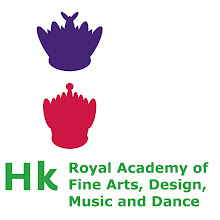
Although the island of Schiermonnikoog is very small, it is still large enough to require a bicycle for getting around. Rineke our guide set a course for us and we set out to explore: West and East, North and South.
Light and dark.
Concrete and sand.
Life and death. It’s all there.
There is an old bunker in the middle of the island. It was built by German forces during the second world war to establish a communication hub by means of a 40 metres high antenna. The device never made It there, probably because of sabotage. The bunker is still there, a grey concrete beetle sitting at a strategic high point. It now offers unrivalled views of the island and the surrounding waters.
That is all very well and for explorers like us, band of cross-arts scouts, it is always good to survey the surroundings, but common wisdom dictates that the treasure lies within. We found the entrance to the bunker and roamed around in its small chambers, marvelling at the way that a little light found its way in and the sounds of the spaces and materials within. A boy’s adventure book come true!
Shipwrecked anonymous men lie side by side with unknown soldiers from European nations like England, Germany, France, Poland. Not all are unnamed and plaques show the deaths of young men: some made it to their thirties but so many did not. Twenty-three, twenty, as young as eighteen years old they were shot down in their planes and their remains made it to this beautiful tranquil place on this strange island. Brushing aside the snow from the plaques it made me realise all the things that these young men, boys, had never known.
We biked to the beach, with snowy sand and sandy snow. We biked through the dunes to where the ‘kwelders’ begin, a beautiful watery ecosystem that stretches as far as the eye can see. We biked along the ‘Waddenzee’ to the southern tip of the island and watched the ferry landing place in the distance. (The following morning the snow decided to take things seriously and positively flood the north of the Netherlands. We were lucky to get home. The views, however, were beautiful as we made a last stop before departure, at the little catholic church on the island.)
We're meeting the students in January. So far I have received the names of most of them and also many short biographies of who they are and what they (want to) do. It is going to be an interesting group. I am looking forward to what they will come up with. :)








